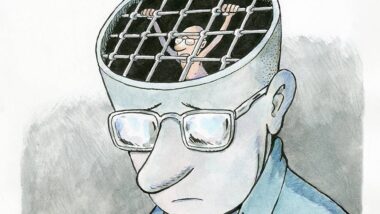DIe amerikanische Organisation Freedom House ist bekannt für ihre umfangreichen und methodologisch recht ausgefeilten Berichte zum Stand der bürgerlichen Freiheiten in der ganzen Welt. Im letzten Jahr haben sie endlich mal angefangen, sich auch um die Freiheitsrechte im Internet zu kümmern. Die Methodologie für den "Global Internet Freedom Index" ist nun fertig, und heute wurde auf der re:publica ein erster Pilot-Bericht vorgestellt , der die Ergebnisse von 15 Länderanalysen auf dieser Basis zusammenfasst. Es ging dabei nicht nur um Zensur und ähnliche Sachen, sondern auch um die Verfügbarkeit der zugrundeliegenden Kommunikationstechnologien und anderes. Die Ergebnisse sind recht interessant, so ist vielfach die Pressefreiheit stärker bedroht als die Netzfreiheit. Zensur nimmt allerdings fast überall zu, gleichzeitig scheinen die Aktivisten sich aber auch stärker mit Hilfe des Internet gegen Repression zu wehren. Die Presseerklärung fasst die Trends so zusammen:
• Growing Access, Threats: In six (40 percent) of the countries examined, internet use doubled between 2006 and 2008. Mobile phone penetration doubled in three (20 percent) of the countries. At the same time, six countries (40 percent) sentenced a blogger to prison and a third of the countries introduced new internet-restricting legislation. Methods to control and censor traditional media are seeping into the new media environment, but are not as common yet. In addition to imprisonment, torture, and intimidation of internet activists, governments also engage in online harassment by hacking or using technical means to shut down websites.
• Censorship Proliferates: Eleven countries (73 percent) targeted political content in at least one instance, and general censorship and control was present in every country studied. Censorship techniques included technical filtering, manual content removal because of government directives, intimidation, judicial decisions and sophisticated manipulation of online conversations by undercover agents.
• Outsourcing Censorship: More governments are requiring private actors such as internet service providers, blog hosting companies, cybercafé employees and mobile phone operators to censor and monitor users. This outsourcing affects both local and multinational companies.
• More Internet Freedom than Press Freedom: For every country in the study—with the exception of the United Kingdom—their internet freedom score outperformed their score in Freedom House’s Freedom of the Press study, which principally examines broadcast and print media. These differences were most pronounced in the Partly Free countries such as Kenya, Russia and Malaysia.
• Civic Activism Increases: Citizens are resisting government control by blogging, using code for sensitive keywords and organizing protests and advocacy groups through social networks like Facebook.
Der Schwerpunkt scheint entsprechend der Freedom-House-Tradition auf Zensur zu liegen. Wenn sie noch stärker auf Überwachung geachtet hätten, wäre z.B. Großbritannien sicher nicht in der Liste der freiesten Länder gelandet. Wir werden darüber mit den Leuten von Freedom House, die gerade hier in Berlin sind, die nächsten Tage noch in Ruhe reden – der Sinn der Pilotstudie ist ja, genau solches Feedback zu bekommen.




Ist das ein schlechter Scherz? Freedom House ist eine neokonservative Denkfabrik, die nach ihrem Gusto Berichte erstellt.
http://www.monthlyreview.org/mrzine/barahona030107.html
Und was ist bitte schön MonthlyReview, was Du hier als Quelle für Deine These heranziehst?